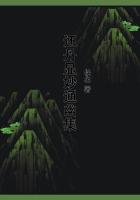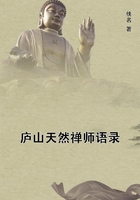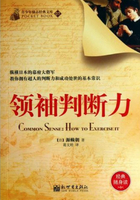(1) Since St.Luke once, Acts 5:37, and Josephus four several times, once here, sect.6; and B.XX.ch.5.sect.2; Of the War, B.II.ch.8.sect.1; and ch.17.sect.8, calls this Judas, who was the pestilent author of that seditious doctrine and temper which brought the Jewish nation to utter destruction, a Galilean;but here (sect.1) Josephus calls him a Gaulonite, of the city of Gamala; it is a great question where this Judas was born, whether in Galilee on the west side, or in Gaulonitis on the east side, of the river Jordan; while, in the place just now cited out of the Antiquities, B.XX.ch.5.sect.2, he is not only called a Galilean, but it is added to his story, "as I have signified in the books that go before these," as if he had still called him a Galilean in those Antiquities before, as well as in that particular place, as Dean Aldrich observes, Of the War, B.II.
ch.8.sect.1.Nor can one well imagine why he should here call him a Gaulonite, when in the 6th sect.following here, as well as twice Of the War, he still calls him a Galilean.As for the city of Gamala, whence this Judas was derived, it determines nothing, since there were two of that name, the one in Gaulonitis, the other in Galilee.See Reland on the city or town of that name.
(2) It seems not very improbable to me that this Sadduc, the Pharisee, was the very same man of whom the Rabbins speak, as the unhappy, but undesigning, occasion of the impiety or infidelity of the Sadducees; nor perhaps had the men this name of Sadducees till this very time, though they were a distinct sect long before.See the note on B.XIII.ch.10.sect 5; and Dean Prideaux, as there quoted.Nor do we, that I know of, find the least footsteps of such impiety or infidelity of these Sadducees before this time, the Recognitions assuring us that they began about the days of John the Baptist; B.1.ch.54.See note above.
(3) It seems by what Josephus says here, and Philo himself elsewhere, Op.p.679, that these Essens did not use to go to the Jewish festivals at Jerusalem, or to offer sacrifices there, which may be one great occasion why they are never mentioned in the ordinary books of the New Testament; though, in the Apostolical Constitutions, they are mentioned as those that observed the customs of their forefathers, and that without any such ill character laid upon them as is there laid upon the other sects among that people.
(4) Who these Polistae in Josephus, or in Strabo.among the Pythagoric Dacae, were, it is not easy to determine.Scaliger offers no improbable conjecture, that some of these Dacae lived alone, like monks, in tents or caves; but that others of them lived together in built cities, and thence were called by such names as implied the same.
(5) We may here take notice, as well as in the parallel parts of the books Of the War, B.II.ch.9.sect.1, that after the death of Herod the Great, and the succession of Archclaus, Josephus is very brief in his accounts of Judea, till near his own time.Isuppose the reason is, that after the large history of Nicolaus of Damascus, including the life of Herod, and probably the succession and first actions of his sons, he had but few good histories of those times before him.
(6) Numbers 19:11-14.
(7) This citation is now wanting.
(8) These Jews, as they are here called, whose blood Pilate shed on this occasion, may very well be those very Galilean Jews, "whose blood Pilate had mingled with their sacrifices," Luke 13:1, 2; these tumults being usually excited at some of the Jews'
great festivals, when they slew abundance of sacrifices, and the Galileans being commonly much more busy in such tumults than those of Judea and Jerusalem, as we learn from the history of Archelaus, Antiq.B.XVII.ch.9.sect.3 and ch.10.sect.2, 9;though, indeed, Josephus's present copies say not one word of "those eighteen upon whom the tower in Siloam fell, and slew them," which the 4th verse of the same 13th chapter of St.Luke informs us of.But since our gospel teaches us, Luke 23:6, 7, that "when Pilate heard of Galilee, he asked whether Jesus were a Galilean.And as soon as he knew that he belonged to Herod's jurisdiction, he sent him to Herod ;" and ver.12, "The same day Pilate and Herod were made friends together for before they had been at enmity between themselves;" take the very probable key of this matter in the words of the learned Noldius, de Herod.No.
219: "The cause of the enmity between Herod and Pilate (says he)seems to have been this, that Pilate had intermeddled with the tetrarch's jurisdiction, and had slain some of his Galilean subjects, Luke 13:1; and, as he was willing to correct that error, he sent Christ to Herod at this time."(9) A.D.33, April 3.
(10) April 5.
(11) Of the banishment of these four thousand Jews into Sardinia by Tiberius, see Suetonlus in Tiber.sect.36.But as for Mr.
Reland's note here, which supposes that Jews could not, consistently with their laws, be soldiers, it is contradicted by one branch of the history before us, and contrary to innumerable instances of their fighting, and proving excellent soldiers in war; and indeed many of the best of them, and even under heathen kings themselves, did so; those, I mean, who allowed them their rest on the sabbath day, and other solemn festivals, and let them live according to their own laws, as Alexander the Great and the Ptolemies of Egypt did.It is true, they could not always obtain those privileges, and then they got executed as well as they could, or sometimes absolutely refused to fight, which seems to have been the case here, as to the major part of the Jews now banished, but nothing more.See several of the Roman decrees in their favor as to such matters, B.XIV.ch.10.















